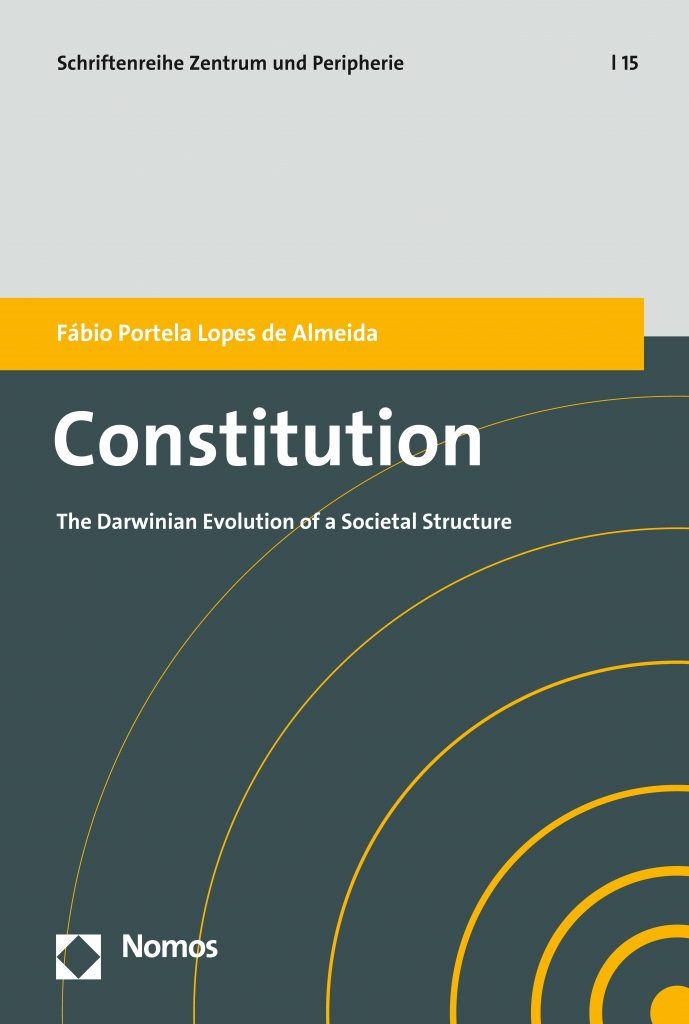 Fábio Portela Lopes de Almeida
Fábio Portela Lopes de Almeida
Constitution
The Darwinian Evolution of a Societal Structure
The emergence of modern societies organised according to legal constitutions is an evolutionary puzzle. Homo sapiens are the only animal species capable of living in large-scale, cooperative societies whose members are genetically unrelated individuals. But neither sociological nor biological models can adequately explain this unique feature of contemporary human societies. Recently, gene-culture co-evolutionary theory explained the emergence of human institutions, which takes into account the reciprocal influence between culture and innate psychology in the course of human evolution. Relying on this account of contemporary evolutionary theory, this book advances the claim that constitutions are a complex adaptation grounded in both our innate social psychology and specific social institutions. Constitutionalism evolved as a societal adaptation, necessary to provide a unified symbolic moral system expected by human psychology in pluralistic moral societies. More than that, constitutions also structured modern society to deal with the evolutionary pressures coming from the fast-paced changes occurring, among others, in legal and economic systems. This book develops a novel, interdisciplinary perspective about the evolution of law and the role played by constitutions in the emergence of complex contemporary societies.
Der Band diskutiert die Rolle und Wichtigkeit von Verfassungen in modernen Gesellschaften. Aus interdisziplinärer Perspektive wird aufgezeigt, wie sich Verfassungen trotz großer Vielfalt innerhalb der Gesellschaft entwickeln konnten und wie sie dabei helfen, ein gemeinsames Moralsystem zu schaffen. Der Mensch ist die einzige Spezies, die in großen Gemeinschaften leben kann, obwohl ihre Mitglieder genetisch unabhängige Individuen sind. Diese Vielfalt macht die Rolle von Verfassungen besonders komplex. Die Arbeit beleuchtet, wie der Konstitutionalismus zur Etablierung eines einheitlichen Moralsystems beiträgt.